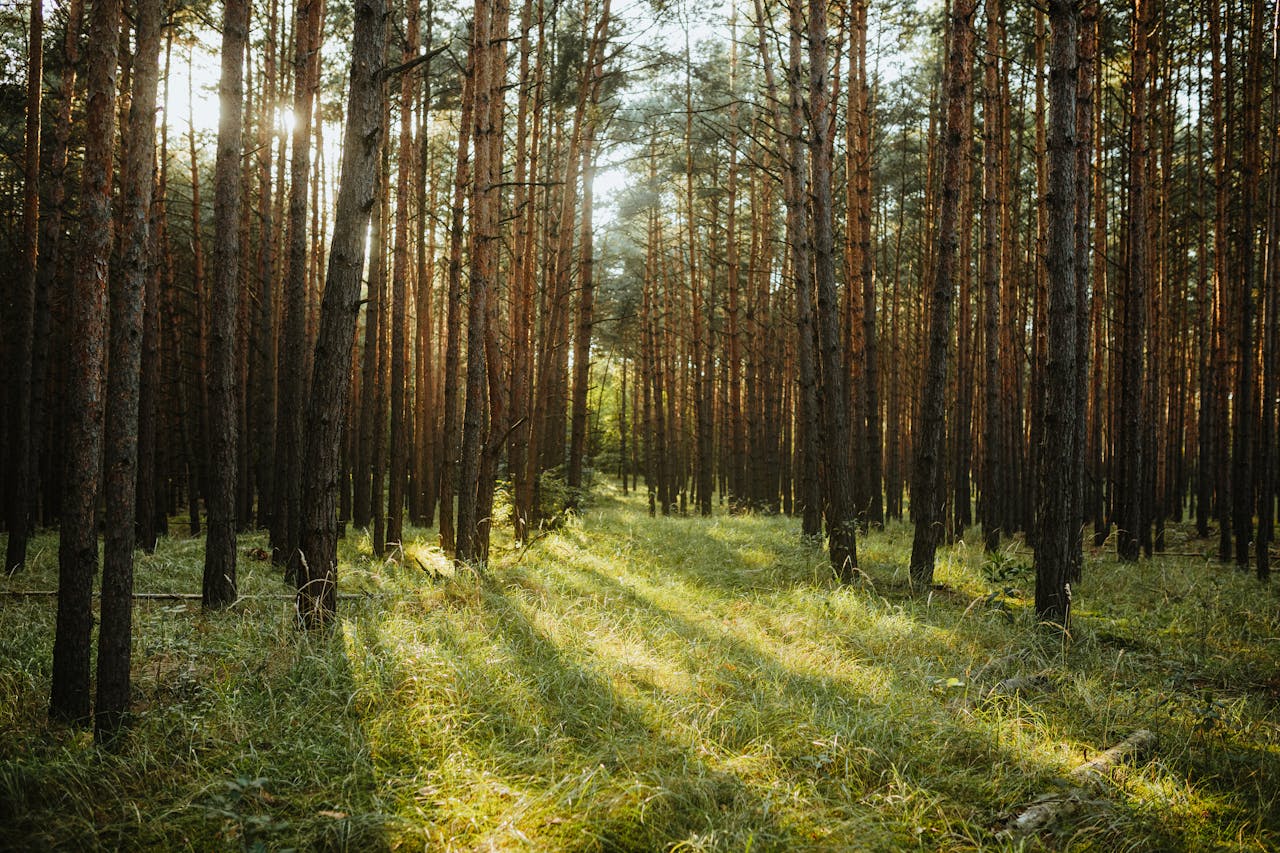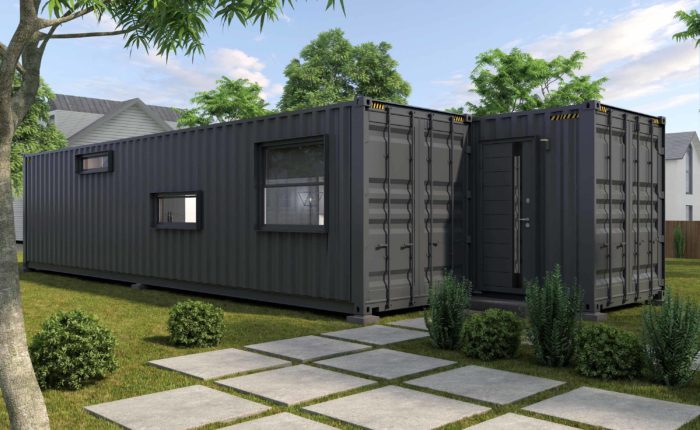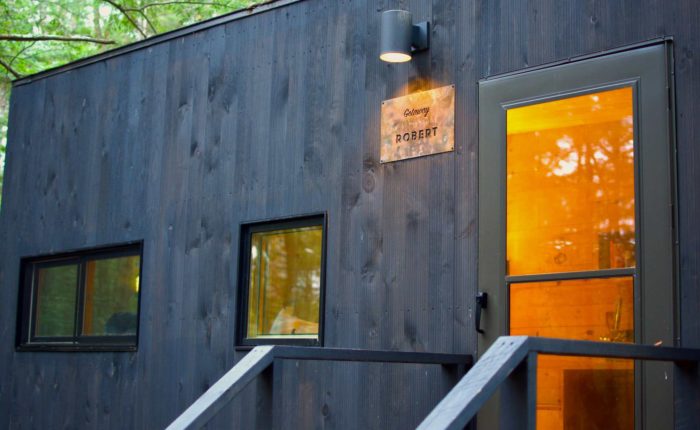Embarking on an off-grid lifestyle in the UK is akin to heading off on a journey of self-discovery, sustainability, and reconnection with nature and the world around you. It’s a lifestyle that captivates the imagination, promises freedom from conventional constraints of modernity and a return to simpler, more harmonious living.
But amidst the allure of this alternate way of life, a pressing question lingers: How difficult is living off the grid legally in the UK? The short answer is, the difficulty of off grid living will depend on you — what your intentions and goals are, where you want to live, etc.
Join us as we delve into the legal intricacies of off grid living in the UK, uncovering essential insights, and guiding you through the steps necessary to make your dreams a reality while staying firmly within the bounds of the law.
Is Living Off the Grid Legal?
Living off the grid — a lifestyle marked by self-sufficiency, sustainability, and a deep-rooted connection to nature — has captured the imagination of many in the UK. But amidst the allure of this alternative way of life, a crucial question looms: is it legal? Well, off grid living is not illegal, but there are important steps to consider.
It’s vital that you carefully consider the legality of your new lifestyle. Being caught living off the grid illegally in the UK can come with a number of punishments of varying severity, including:
- Fines: A fine can be imposed by the local authorities if you are seen to have violated land use regulations and building codes.
- Eviction: If you are seen to be living unlawfully in an area, you may be evicted by the landowners or a legal injunction can be placed requiring total compliance with all relevant laws.
- Criminal Charges: Legal proceedings may result in criminal charges being placed, potentially even resulting in imprisonment.
- Mandatory Removal: Placing an inappropriate structure on land could lead to its mandatory removal or modification.
- Impact on Future Ownership: Repercussions can be put in place to prevent or make future land ownership more difficult as a result of your past infractions
- Issues For Future Projects: You may find it much more difficult to obtain permits, licences, permissions, etc. for future projects.
- Damage to Relationships: Non-compliance with regulations (and expectations held by your neighbours) could lead to irreparable damage to your relationship with the local community.
Living Off The Grid Legally in the UK: Step By Step
Living off the grid legally in the UK will require careful consideration and adherence to various legal aspects, including land ownership regulations, planning permissions, building regulations, and environmental standards. Without this adherence, your off grid dreams can quickly become legal nightmares, and your fantasy of a new life away from the hustle and bustle could be kiboshed very quickly.
Here’s a comprehensive guide on what you can do to start off with your ideal off grid life while adhering to all necessary legal requirements.
Step One: Research and Planning
The first step towards living off the grid legally in the UK should always be to conduct thorough and ample research on off-grid living principles and practices.
The time spent gathering as much insight as you can on the legal frameworks surrounding land ownership, planning permissions, building regulations, and environmental standards will be more than worth it down the line if authorities start to question your living situation.
For more information on how you can live off the grid, browse our catalogue of blogs and guides aimed to educate and inform you.
Step Two: Secure Your Land:
The next key step should be to secure an ideal development plot. Important factors to consider when looking for where you are to build your new life off the grid include the land’s accessibility, proximity to viable water sources, its soil quality, and the status of the land (is it protected?)
The two most common ways a person can secure their plot of land are:
- Purchase land for that explicit purpose
- Come to a formal agreement with the landowner, allowing you access to a plot in exchange for money, a service, etc.
Whichever method you choose, obtaining legal permission to inhibit and utilise the land for your needs is fundamental if you want to avoid future punishment.
Having clear, transparent, and legally sound agreements in place will help to mitigate potential disputes in the future and establish a solid foundation for an individual venturing into off-grid living.
Step Three: Understand Planning Permission and Building Regulations
Navigating the often-intricate landscape of planning permissions and building regulations is indispensable for anybody looking to establish an off-grid homestead.
While certain structures may not necessitate any formal approval, adherence to regulatory standards, particularly concerning a permanent dwelling, should be viewed as 100% mandatory and not to be ignored.
If you plan to live off-grid full time, then it is recommended that you seek guidance from local authorities and engage professional advice to facilitate a smooth process. This will ensure that your off-grid home’s setup aligns with all legal requirements. By proactively addressing these potential issues, you mitigate future obstacles and ensure compliance with all legal standards, ensuring as smooth a transition as possible to off-grid life.
However, for those looking to set up a ‘home away from home’ off the grid, perhaps a shipping container holiday home, you should look into the 60 day rule implemented by the government. The 90 day rule, increased from 28 days in 2023, is a provision within UK planning regulations that allows an individual to live in a temporary structure on their land for up to 60 days without the need for any planning permission.
This permits temporary accommodation to be used for recreational purposes without requiring any formal approval from local-planning authorities.
Step Four: Apply For Necessary Permissions
Make sure you have dedicated the necessary time to amply prepare and submit applications for planning permissions, building permits, and any other necessary approvals to enable the installation of your off grid infrastructure.
Provide detailed plans, drawings, and documentation to support your applications and address and concerns that may be raised by the local planning authorities. It is imperative that you respond promptly to any requests for additional information or modifications to plans.
You may wish to consult with a professional at this stage to ensure that the process is completed properly and thoroughly with no stone left unturned.
Step Five: Community Engagement:
Particularly true if you have an agreement in place with a landowner, or if you are relying on the 60 day rule for temporary dwellings, it is vital that you engage with your neighbours and integrate yourself as much as possible into the community.
Foster as much goodwill as you can. The last thing you want is for the landowner to decide that they want you off their land due to a petty squabble — as this would set you back to square one.
Similarly, if one of your neighbours becomes aggrieved at your temporary structure, they may contact local authorities and request an investigation. Even if you are totally complying with the laws and regulations in place, you will likely not want large amounts of your time being taken up dealing with authorities as a result of calls from a neighbour.
Step Six: Ensure Consistent Legal Compliance:
Living off the grid legally in the UK will require continued monitoring of all the various laws, regulations, and policies that could impact you. Ensure that you’re always up-to-date and well-informed when it comes to any potential law changes that could put your life off grid at risk.
Additionally, while off grid life is about getting as far away as possible from the busy city and all of its problems, you can’t escape from everything — tax included. It is imperative that you fulfil your tax obligations, including land and property tax, as well as any other applicable fees or levies that may be incurred by your use of land. Adhere to all land use restrictions and any legal requirements that govern individuals looking to live off grid or you could find yourself in a difficult situation.
The best way to ensure you remain compliant is to regularly review your setup and cross-reference it against any updates to the legal standards. Make any adjustments you deem necessary in order to stay compliant.
Step Seven: Monitor Environmental Impact
Individuals are legally obligated to minimise their harm to the environment. As a result, environmental authorities have the power to take legal action if you cause any damage to land while living off the grid, even if you own the land.
It’s important to remember, environmental protection laws are not there to make your life difficult, they are there to safeguard our natural habitats and vital ecosystems.
If your activities were seen to have resulted in environmental degradation, such as soil erosion, water pollution, habitat destruction, or harm to any protected species, you may face penalties or enforcement action.
To avoid penalties and legal repercussions, it’s essential to adopt sustainable practices, implement measures necessary to mitigate your impact on the environment, and adhere to applicable regulations. This can involve considerations to:
- Proper waste management
- Responsible use of natural resources
- Habitat conversion
- Compliance with environmental permits/licences
Embracing an Exciting New Lifestyle With Live Off Grid
Living off the grid (legally) in the UK is not just a lifestyle choice; it’s a philosophy — a commitment to sustainability, self-sufficiency, and most importantly of all; freedom. By following key steps like meeting laws and regulations head on, adopting eco-friendly practices, and fostering community connections, you can create a fulfilling and legally compliant existence off the grid.
The lifestyle offers you a unique opportunity. But whether you’re seeking a solitary retreat from the business of urban life, or are desiring a culture shift to reduce your environmental footprint, off-grid living holds immense appeal. And with luxury converted shipping containers from Live Off Grid, you can enjoy all the comforts of modern living, while leaving as menial a footprint on the planet as possible.
So, what are you waiting for? Take the plunge today and embark on the adventure of a lifetime. The off grid life awaits you. Get in touch with a member of our expert team today and find out more about what we can do for you. Browse our array of container homes today and get inspired.



